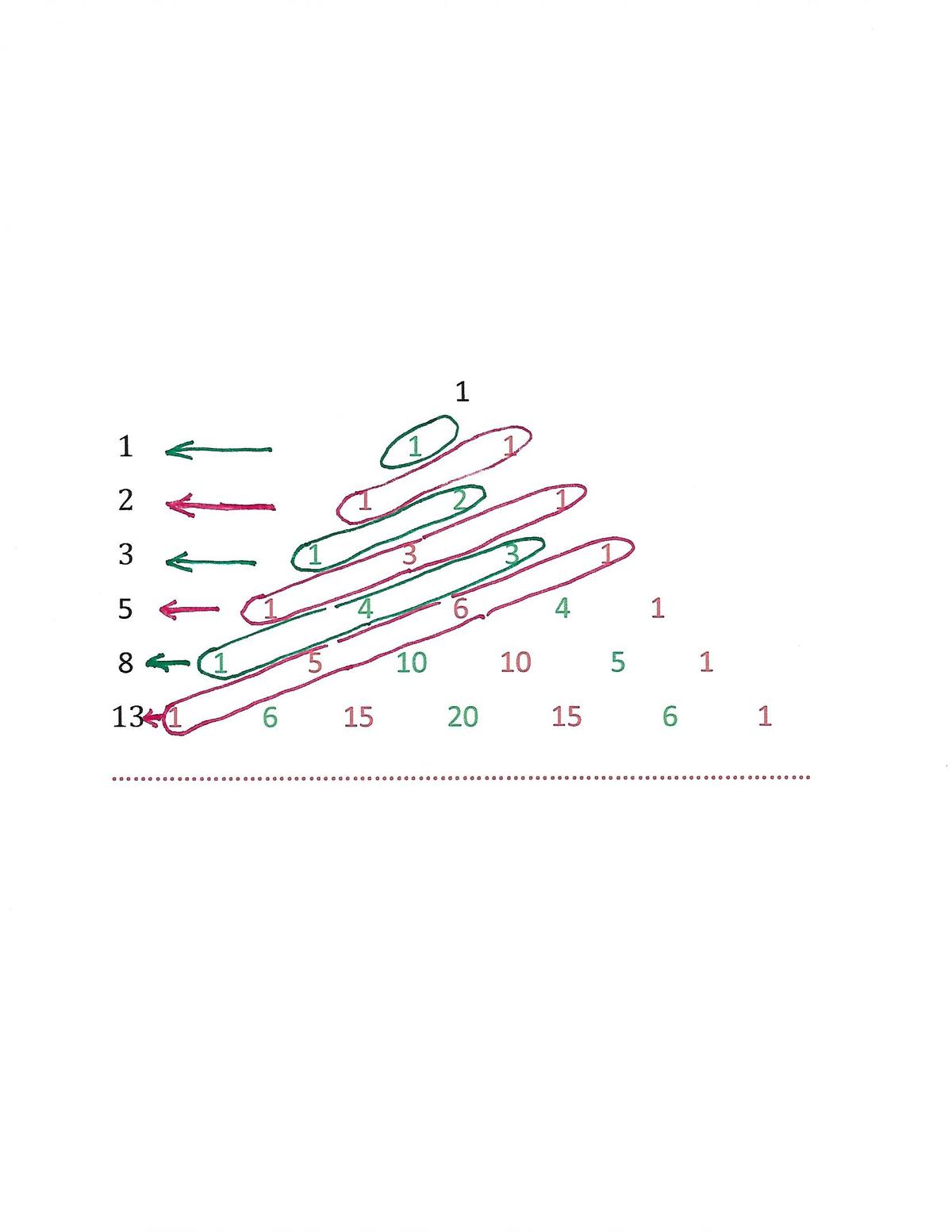Fibonacci numbers out of the blue
In my "Challenging limit" problem the binomial coefficients of the powers of 2 are amazing. Is the sum of all those binomial coefficients shown below a Fibonacci number for any number n ???
This section requires Javascript.
You are seeing this because something didn't load right. We suggest you, (a) try
refreshing the page, (b) enabling javascript if it is disabled on your browser and,
finally, (c)
loading the
non-javascript version of this page
. We're sorry about the hassle.

Here's a "visual" induction proof that the sum of the terms in the n th "gentle" (couldn't think of a better antonym for 'steep') diagonal of Pascal's triangle is F n , the n th Fibonacci number.
Here the terms in diagonal D n correspond to the terms in the sum k = 0 ∑ ⌊ 2 n ⌋ ( k n − k ) .
Basis: Sum of terms in D 0 is ( 0 0 ) = 1 = F 0 ; sum of terms in D 1 is ( 0 1 ) = 1 = F 1 .
Induction: Suppose the sum of the terms in D n − 2 is F n − 2 and the sum of the terms in D n − 1 is F n − 1 . Every term in D n is the sum of the two terms above it in the same color, one in D n − 1 , the other in D n − 2 . Then the sum of the terms in D n is the sum of the terms in both D n − 1 and D n − 2 , i.e. the sum of the terms in D n is F n − 2 + F n − 1 = F n .